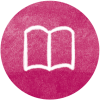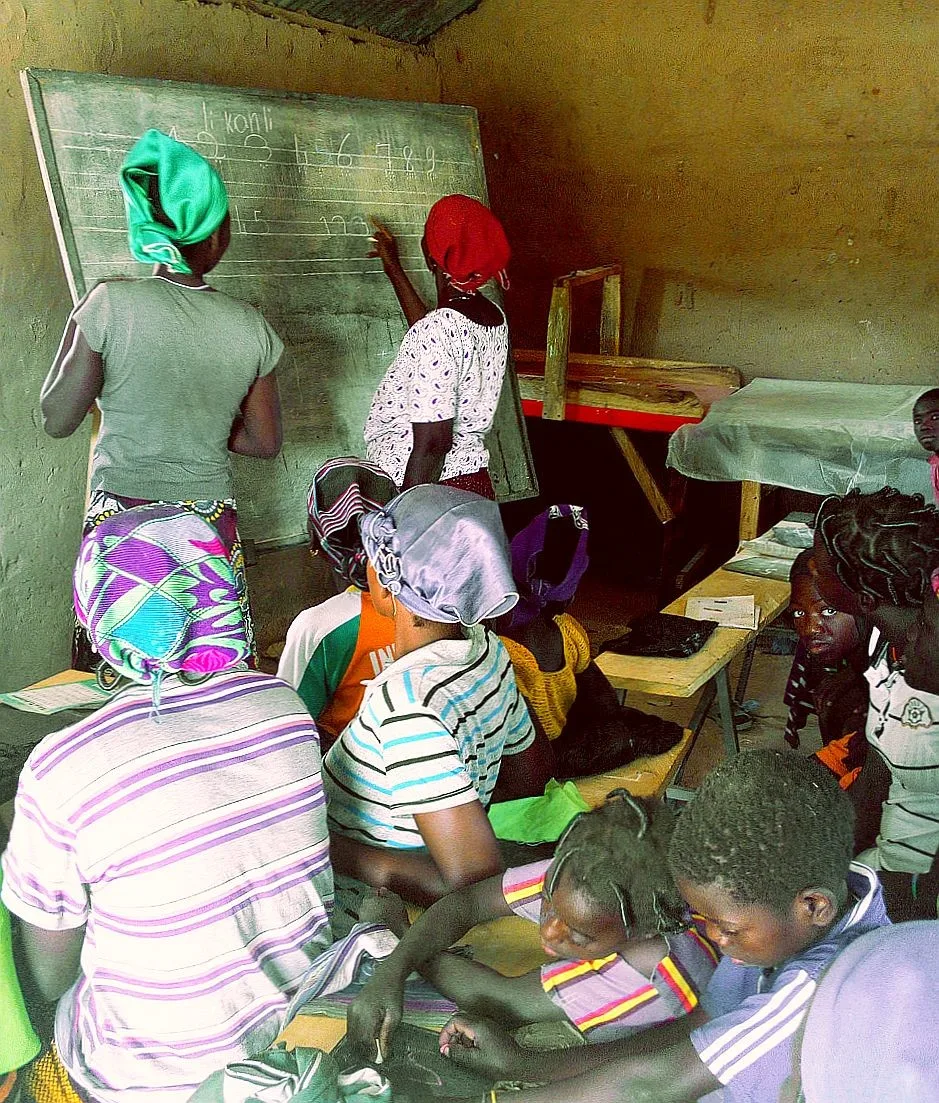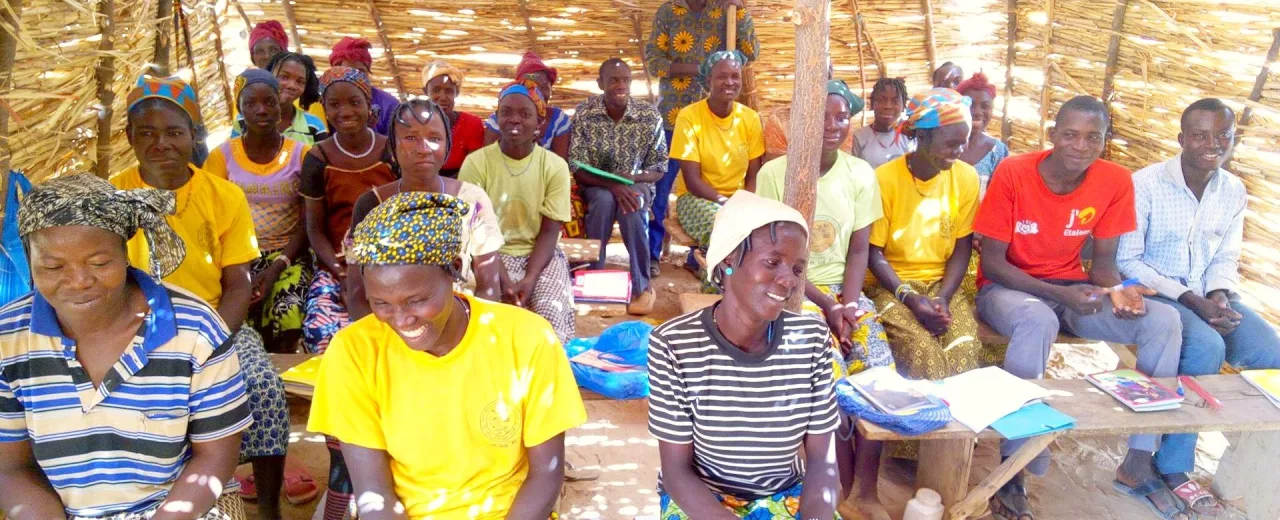 Satisfying the hunger for education in Burkina Faso
Satisfying the hunger for education in Burkina Faso
Step by step towards more educational equality
Folpoa is only five years old. For a few weeks now, she has been watching curiously as her older brother leaves for the new school in Kpenkibaga every morning. She doesn't know what to do with the strange symbols he draws in his notebooks and her parents can't explain it to her either. "Just wait until you're six years old, then you can go to school, too!" they placate their daughter time and again. Together with some other children, Folpoa finally begs her brother Diamoadi to let her in on the secret sign language. Diamoadi does not ask twice, so proud is he of what he has already learned. But it is to be done in secret! So one night a crowd of children find themselves on the dusty ground behind their parents' hut, still warmed by the sun, to be shown how to write their names by the pale light of a torch. Diamoadi, Folpoa and their siblings belong to the first generation to be able to attend school locally. Even their parents had not had the chance to learn to read and write as children. Inspired by their children, the parents bring adult literacy to the village.
Necessity
Basic reading and writing skills for the people of Falaise Gobnangou
Activity
Local teachers offer literacy classes on site in the local language Gourmantchéma
Countable effort
1 year of literacy classes for 111 classes with the contents reading, writing, arithmetic, hygiene, family planning and health
Result
Approximately 3330 people, including children and young people of school age, have acquired basic skills in reading, writing and arithmetic
Systemic effect
The population can participate in social, cultural, political and economic activities in a strengthened way and can educate themselves individually
Background
“Literacy – broadly defined as the provision of basic knowledge and skills needed by all people in a rapidly changing world – is a fundamental human right. […] Literacy opens the way to participation in social, cultural, political and economic activities and to lifelong learning.” (Hamburg Declaration 1997) For this reason, the OECD counts literacy among the most important development indicators. In developing countries, studies have even found a correlation between child mortality and maternal literacy: Children of literate mothers have a 50% higher chance of living beyond 5 years of age compared to children of illiterate mothers (Cree et al., 2022). Even 25 years after the postulate of the Hamburg Declaration, about 13 % of the world’s population cannot read and write. Burkina Faso is among the 10 countries with the lowest literacy rate: only 46 % of the adult population can read and write. In the rural regions, the rate is even lower at around 26% due to the poor infrastructure (UNESCO, 2023). The situation in the Falaise Gobnangou is challenging for several reasons: Due to its location on the country’s border and the great distance to the nearest city, the area is not protected by state security forces and is poorly connected due to a lack of roads. In addition, since the beginning of 2020, there has been an increasing threat from Islamist terrorist groups. This has led to the closure of local schools. For children and adolescents, literacy through private organisations is currently the only education available. As the telecommunication structure has also been destroyed, it is currently not possible to travel to the project area. This also led to the withdrawal of all other NGOs. Due to the two military coups in 2022, the political situation throughout Burkina remains extremely unstable (BMZ 2023). However, the partner organisation UNTAANI is still able to organise literacy in rural Falaise Gobnangou under the radar of extremist groups.
The good deed
The Falaise Gobnangou, a remote mountain range in East Burkina Faso, is almost completely cut off from the surrounding infrastructure. The population lives from subsistence farming - there is no time for long journeys to school. Literacy programmes start right there by teaching in the scattered settlements; the courses end at the beginning of the rainy and sowing season in summer. In this way, the literacy programme strengthens the independence of young women in particular, who can take part in the courses alongside their other obligations in the house and on the farm! The lessons take place over two years. Besides reading, writing and arithmetic, basic knowledge about family planning, healthy nutrition and hygiene is also taught. This good deed pays the local teachers and equips huts in the villages with furniture. Thus, approx. 30 lessons per week can take place in 111 classes.

About Burkina Faso
Ouagadougou
Capital
22,673,762
Number of inhabitants
832.9
Gross domestic product per capita per year
0,449
Human Development Index
"Burkina Faso" means "land of honest people". The name of the capital "Ouagadougou" means "You are welcome here with us"! Community and warmth of the people are already in the names here!
About the organization and further information
Association
Lernen dürfen e. V.
Website
https://www.lernen-duerfen.org
Further information and source
- Commonwealth of Learning, 2005. Literacy and Livelihoods. Learning for Life in a Changing World, Commonwealth of Learning, Vancouver
- Cree, A. et al, 2022. The Economic and Social Cost of Illiteracy. A snapshot of illiteracy in a global context. Final Report from the World Literacy Foundation
- Arbeitsgruppe OECD-Projekt Future of Education and Skills, 2020. OECD-Projekt Future of Education and Skills 2030, OECD Lernkompass 2030, Bertelsmann Stiftung u.a.




